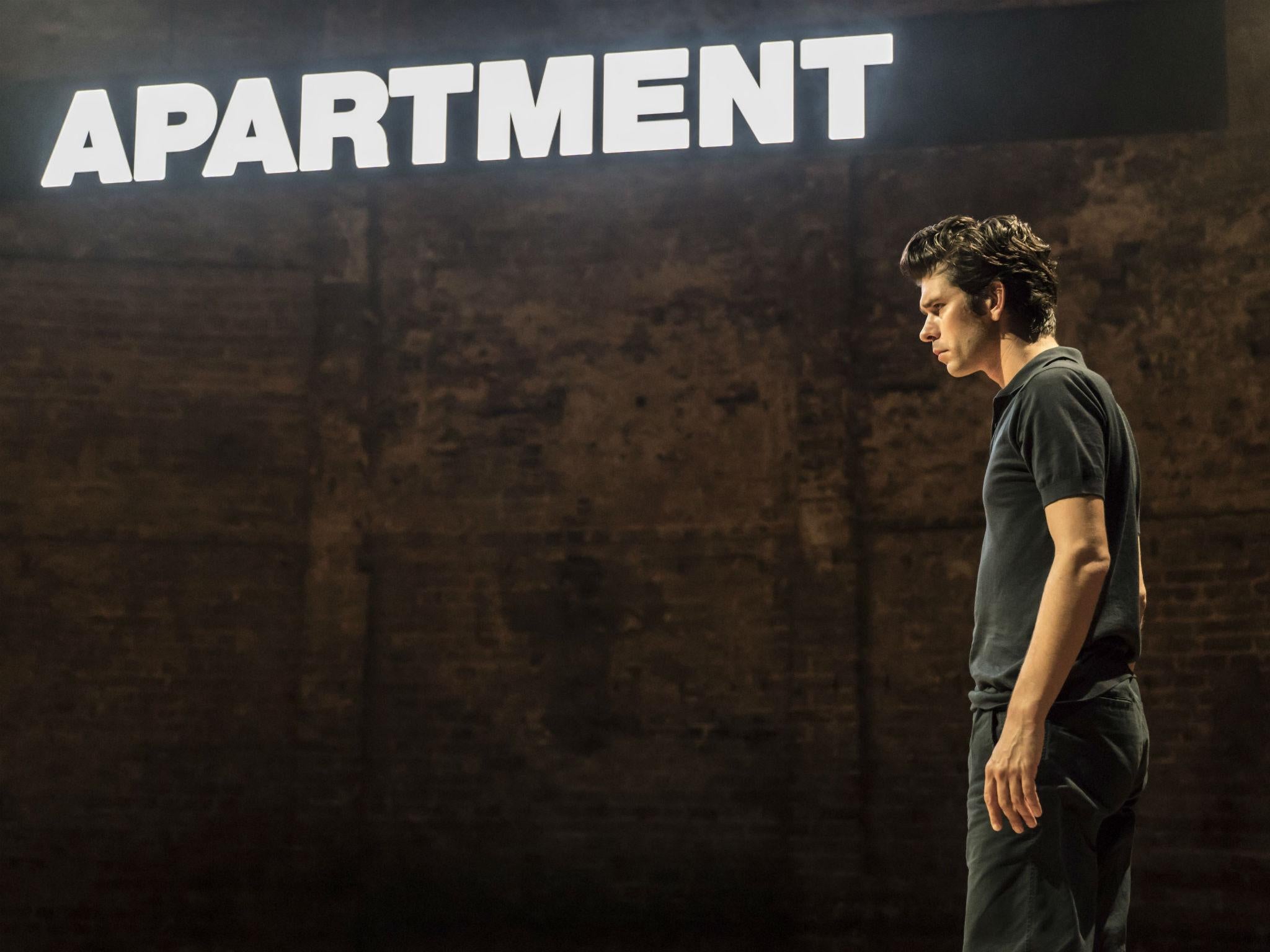Against, Almeida Theatre, London, review: From such an accomplished, on-the-ball writer as Christopher Shinn, this is a disappointment
Despite its flaws, Ben Whishaw returns to the Almeida to give a mesmerising portrayal of Luke, a Silicon Valley aerospace billionaire, who believes God has spoken to him

There’s a whiff of Elon Musk about the protagonist of Christopher Shinn’s ambitious but frustrating new play. Ben Whishaw returns to the Almeida to give a mesmerising, subtle portrayal of Luke, a Silicon Valley aerospace billionaire whose fortune has been made from rocket science, solar panels and the development of artificial intelligence. But now he believes that God has spoken to him, telling him to “Go where there’s violence”. Accordingly, he sets out on a mission to get to the heart of the problem by crossing the US and really listening to people whose lives have been affected. Maybe God’s plan was to make Luke famous through his inventions just so that he could eventually help to change the world in this more profound way.
The play follows Whishaw’s character as he visits (inter alia) the devastated parents of a boy who committed a school massacre; the campus of a college that has badly mishandled a rape case; and Equator, a sinister Amazon-like global distribution company that enslaves its workforce. He’s accompanied by his adoring assistant Sheila (the excellent Amanda Hae) who is anxious for him to keep quiet about the God business. But this soon gets out, inevitably complicating the project as he amasses followers who look to him for hope and a corresponding band of critics.
Whishaw last appeared at this address giving a seductive and unnervingly equivocal performance as the cross-dressing god, Dionysus, in Bakkhai. The actor’s genius for suggesting ambiguity is harnessed more quietly in Ian Rickson’s beautifully performed production. There’s a Jesus-like quality in the gentle, charismatic intensity with which Luke, in his jeans and sneakers, patiently and non-judgementally inspires confessions. At the same time, he conveys the suppressed agitation of a man who has tended to ward off intimacy by pursuing his visionary goals, as we see in the unconscionable way he exploits the devotion of the sorely tried Sheila who is kept dangling while Luke “works on” his readiness for love.
Given the brilliance of his mind, you may feel that it takes the protagonist a fair while to wake up to the violence that social systems inflict and to envisage taking a more radical approach. He starts off believing that his vast wealth “wouldn’t make a dent” in the overall problem; he reaches a point where he contemplates stepping down from his companies and reordering his investments. He is due to make an announcement to the workers at Equator where the CEO has cooked up a scheme for “relational purchasing”, a seemingly enlightened trick (removing the focus from the isolated individual to a network of human bonds) for increasing the acquisitiveness and envy of consumer society by encouraging people to share the reasons for their purchases.
Rickson directs a lucid, stripped-back production that keeps you intrigued through the play’s running time of nearly three hours. But the play still comes across as bitty and insufficiently focussed. Never convincing you that Luke is global guru, it treats violence as a predominantly American problem and, while there is an astute strand of satire about political correctness on campus (Kevin Harvey is very funny as a zealously progressive professor of creative writing who was a sex worker in a former life), it feels odd that this is dwelt on more than some crucial concerns that merit only a passing mention here, such as the vexed sphere of denominational belief (“The New York Times wants to interview you about why you privilege the Bible when you reference religious texts,” Sheila tells Luke briefly) and what would be the massive gun lobby that is merely reported to be holding a demonstration off-stage at one point. From such an accomplished, on-the-ball writer as Shinn, this is a disappointment.
Join our commenting forum
Join thought-provoking conversations, follow other Independent readers and see their replies
Comments
Bookmark popover
Removed from bookmarks